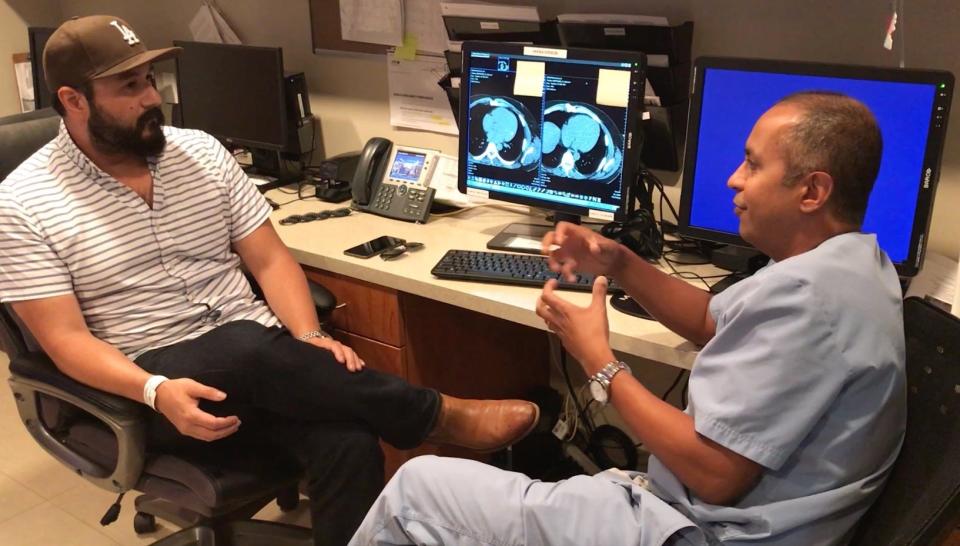How having the flu could damage your heart, increase risk for attack or disease
When we think about complications from the flu, we often think pneumonia and bronchitis. In other words, the lungs.
We also should think about the heart.
"The heart and lungs are tied together," said Dr. Vivek Goswami, a cardiologist with the Heart Hospital of Austin and Austin Heart.
A 2020 study published in the Annals of Internal Medicine looked at adults who were hospitalized for the flu from 2010 to 2017 during the flu seasons. One in 8 had what they called "an acute cardiovascular event," such as heart attack or other sudden heart disease.

What's happening here?
A few things. When people have a respiratory illness like the flu, they could have hypoxia, or less oxygen in the blood. That's hard on the heart, which could affect the heart muscle and trigger a heart attack.
Getting a flu shot: COVID-19, other viruses make flu shots even more important this year
Flu also comes with inflammation, which can cause plaque that has built up in the arteries to break off and cause a heart attack. People also can experience inflammation of the heart muscle (myocarditis) or the lining around the heart (pericarditis).
The flu also can weaken the body, causing sepsis or a secondary infection either from bacteria or another virus. The elevated stress response of the body trying to fight the influenza virus can weaken the heart muscle.
For people who already have a chronic heart condition, Goswami said, "influenza tips them over to cause one of their chronic conditions to be more acute."
If they survive it, their hospitalization and recovery is more prolonged than for an otherwise healthy person.
The things we've learned about COVID-19 also are true about the flu, Goswami said.
Aspirin and your heart: Do not stop taking aspirin: Let risk factors, not age be guide for doctors' recommendations
Deaths and severe illnesses disproportionally happen in people with existing chronic health conditions, such as heart disease and diabetes and older people, though Goswami said, he's seen perfectly healthy pregnant women and college kids die of the flu.
Even before COVID-19, he routinely reminded people that influenza is a top 10 cause of death each year and that it can be prevented.
"Take advantage of the fact that we have a very effective year by year vaccine," Goswami said.
COVID-19 and heart problems: Cardiologist talks prevention, lasting effects for cardiac patients
The flu vaccine can be taken at the same time as a COVID-19 vaccine or booster. For people 65 and older, there is a high dose flu vaccine designed to improve their immunity to the flu.
It takes about two weeks after the flu vaccination for it to be effective, which is why doctors recommend getting the flu vaccine around the end of October, but it's not too late to get one now.
"I can't think of a patient that shouldn't get the flu shot," Goswami said.
This article originally appeared on Austin American-Statesman: Risk of heart attack increases after having the flu

